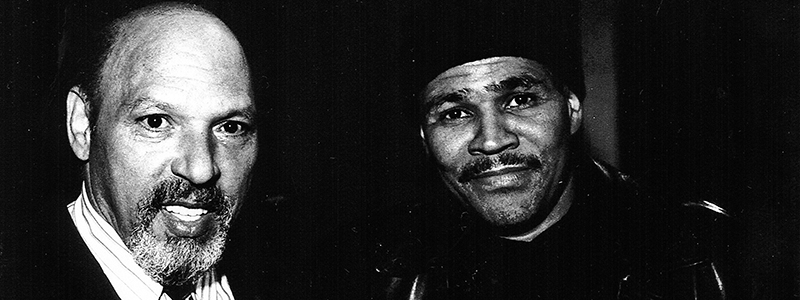In Conversation:
Director Ron OJ Parson

You have said that you always want to direct August Wilson. What is it that excites you about returning to his work again and again?
Great plays are great plays. I get excited about doing great plays whether they’re August Wilson or anybody. Besides Shakespeare, what playwright has written ten plays that you can see somewhere, at almost any time, and it’s a beautiful piece of work? Wilson’s plays are deep—rich in character and language.
I’ve done Jitney five times and Ma Rainey‘s Black Bottom four times. But each time they’re different because of the artists you’re working with. I do use a lot of what I call “Wilson-ites.” These are actors who perform a lot of August Wilson, not only with me, but with other directors as well. They know the rhythm and music of the piece. The characters are so well-developed that you can really dig into it as an actor or director. I’ve acted in a couple of Wilson’s plays as well, and it’s always fun. That’s the basic thing—they’re fun.
There is a photo of you with August Wilson. What was your relationship to him, and what can you tell us about August Wilson the man?
I met August Wilson when he was the resident writer at Yale before he blew up. On the opening night of Ma Rainey on Broadway, I got to go backstage, and that was a big deal going backstage with the original cast of that play. Little did I know that later on, I’d be doing this.
That picture of us was taken when I directed the inaugural production of The Piano Lesson with Congo Square Theatre Company. He came to see it.
Also, I understudied Jitney at the Goodman, when he was writing it. I would watch the play and watch how he worked. He was a cool dude. You could talk to him, anybody could ask him questions. He loved talking about the world.
Many classic playwrights insert themselves into their plays. Where do you see August Wilson in this play?
Definitely in the music, in the characters, the poetry, the language, the lyricism, all of that. Also, you can see how he understood the history and the specifics of the neighborhoods he was writing about. I have a couple friends in Pittsburgh who were around when Wilson was first getting started, and they used to talk about how he would sit in the diners and just listen to people and talk. That’s what you hear in his writing, the reality of those situations.
How does Two Trains Running stand out from the other plays in Wilson’s American Century Cycle?
They all stand out in their own way. Each decade has its own thing that makes it special. The 60s was a volatile time in this country, and that makes Two Trains special. A lot of people remember it, and older audiences can relate. They’ll know the music, they’ll know the style of dress, the hairstyles, so it will resonate with them. Younger people look at it as history.
What does August Wilson reveal or teach us in this play?
I don’t like to say that a writer is trying to teach somebody a lesson. If I had to say, it would be that we are resilient people and we deal with difficult issues. We are relentless people, and we’re able to persevere through everything. That’s what the characters have to do in this play. The Black Power Movement is happening, and they’re dealing with mental illness, and it‘s those issues that permeate the environment in this urban setting. We have had to deal with a lot of the things that communities like the Hill District in Pittsburgh had to deal with, the change. The lesson is that we are a strong people and we will survive through everything that is thrown at us.
Tell us about your approach to this play and if you have discovered something new about it this time.
The approach to this play is the same as any play. I try to find the spiritual aspect of it and enhance the love that is in the play. I always start plays with love, and in particular, this one is love of the neighborhood, love of the people, love of the culture—all of those things.
Jack Magaw does a lot of my sets, and we always try to make it so that when people from Pittsburgh come in, they feel like they’re in Pittsburgh. That’s done with the accessories on the set. Adding those little things make it Pittsburgh—like the mugs, a poster on the wall, even the music. A lot of great musicians are from Pittsburgh. There’s a lot of those details that make it comfortable for people from Pittsburgh to come see the play and feel like they’re at home.
Two Trains Running is somewhat of a marathon for the actors. How do you help them keep the flow and energy going throughout the entire play?
All plays are marathons, but these are Wilson-ites. For them it’s not a marathon, it’s just a joy. As far as keeping the flow, it’s music. They’re playing an instrument when they talk. It’s like a band playing a song. It’s August Wilson, and they know the rhythm.
What can audiences expect to see in this production?
They can expect a good production—what they’ve always gotten from us when we do August Wilson. These actors are rarin’ to go.
August Wilson’s Two Trains Running is on stage at Court Theatre May 13 through June 12, 2022.